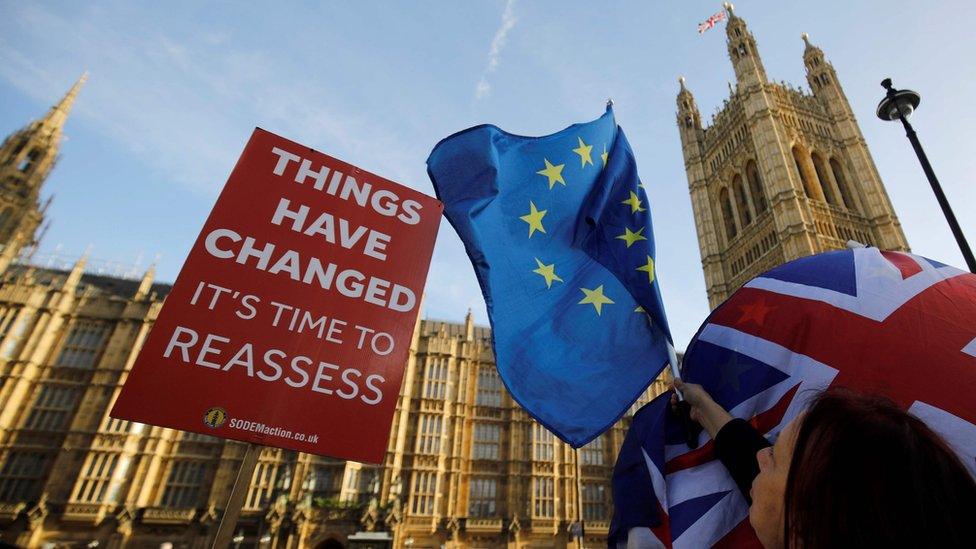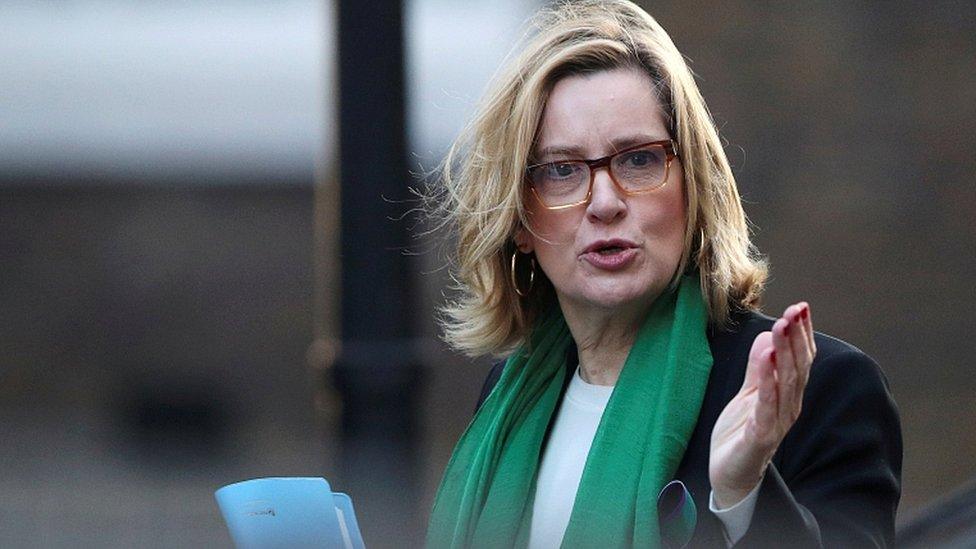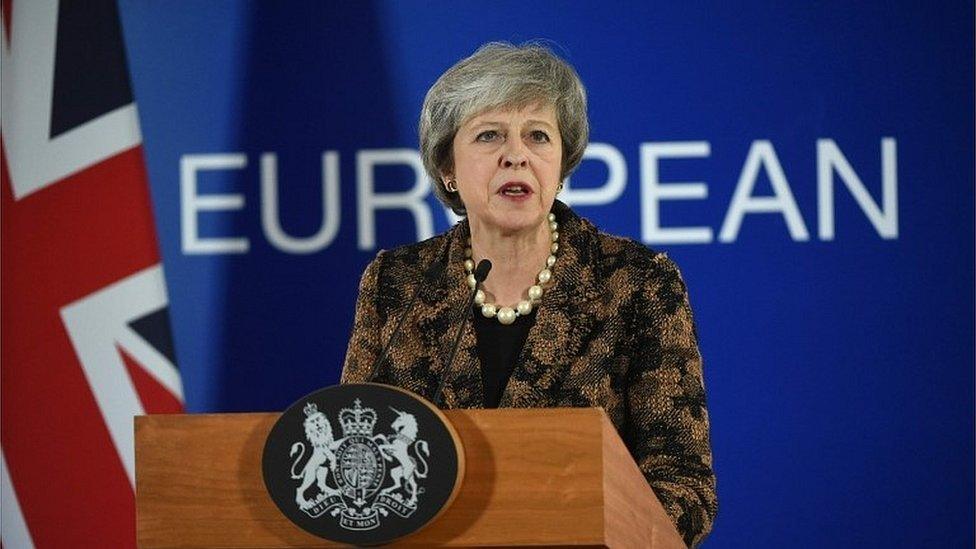Don't forget there is actually a Brexit deal
- Published

Some cabinet ministers are openly discussing a change of approach to Brexit
Politics has been weird for some time, in fact a long time.
There are many reasons, but the two that always come to the front of my mind are the same. Brexit doesn't divide neatly down party lines so Parliament, where decisions are made, doesn't behave like it normally does. Mixing Parliament and Brexit is like trying to mix milk and water; you get a cloudy, unappetising mess.
And the second, central fact - the prime minister has no majority of her own. And without one it means Parliament, even relatively small groups of MPs, can have a huge amount of influence, and enjoy every moment of it too.
Just as we've seen in the last fortnight, with Parliament trying to grasp control and the prime minister struggling to keep hold of her party (believe it or not it's not even seven days since that confidence vote), we are now seeing a third serious problem for Theresa May emerge, and emerge very publicly.
Cabinet ministers are openly calling for something that is not the prime minister's policy. Minister after minister is suggesting that Parliament should have "indicative votes" - essentially, try before you buy, on Brexit.

Amber Rudd is among the cabinet ministers talking openly about alternative Brexit plans
That's despite the fact that the government actually has a deal. Sure, it looks unlikely to pass Parliament as it stands. But as a revealing snap (yet another one) caught the Brexit official Olly Robbins' file today, there are discussions going on with the EU about a tweak to the controversial backstop.

This is, remember, still the deal that the cabinet itself signed up to only a few weeks ago. In this moment, it seems unlikely that it will be "enough" to get the DUP back on board, or enough Tory backbenchers for it to pass through Parliament.
But if Theresa May's plan is to have a fighting chance, surely it needs at the very least her ministers convincingly on her side.
That's why it matters that cabinet discipline seems to have gone missing, with open discussion of what they should do instead - potentially a series of votes on different options - whether a closer economic partnership with the EU than the current deal, like Norway, or even another referendum.
Whatever they are, why anyone thinks there would now be a convincing majority for any of these options, when there hasn't been a clear sign of that for two and a half years, is unclear.
A 'stupid idea'?
One cabinet minister, not one of those who is pushing the idea tells me: "There is supposedly no such thing as a stupid idea, but..."
Others though, including Amber Rudd and Greg Clark, are happily talking openly about this, with the work and pensions secretary even suggesting all options should be on the table.
These are experienced politicians suggesting openly that, on the other side of Christmas, Parliament should start debating and discussing new options for exactly how we leave the EU, when will be, at that point, only weeks away from the UK's planned departure.
Remember, as the law stands, the UK is leaving on 29 March.
You can see the theoretical logic. On the current trajectory, the government will probably need a Plan B. Theresa May has infuriated her colleagues by refusing to countenance discussion of it.
Perhaps starting to talk about the "what ifs" in public is the only way to bounce her into that conversation, to address reality.
But we are witnessing cabinet ministers publicly acknowledging again and again the fundamental weakness of the prime minister's central policy, and that underlines her flimsy position.
Even in these strange times, that's unusual.
And call me a conspiracist (it won't hurt my feelings, it's been said before) but it's no coincidence this open verbiage about what to do next comes just four days after Theresa May admitted publicly for the first time that she will not fight the next election.
- Published14 December 2018
